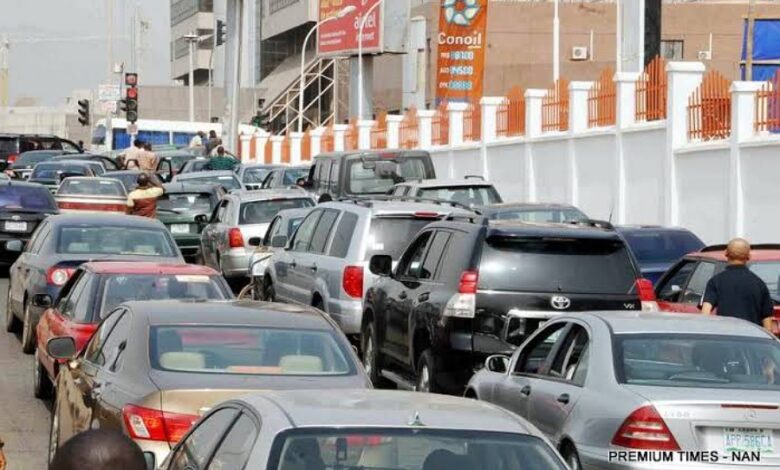Why there is fuel scarcity in Abuja, Lagos – NNPC


The Nigerian National Petroleum Corporation (NNPC) Limited, has attributed the recent fuel queues in the Federal Capital Territory (FCT), Lagos and and other parts of the country to disruptions in the logistics chain, compounded by adverse weather conditions and flooding.
In a statement issued on Monday by Chief Corporate Communications Officer Olufemi Soneye, the NNPC explained that a recent thunderstorm significantly disrupted the ship-to-ship (STS) transfer of Premium Motor Spirit (PMS), commonly known as petrol, between mother vessels and daughter vessels. This disruption has led to delays in berthing at jetties, truck load-outs, and the transportation of products to filling stations.
“The adverse weather condition has also affected berthing at jetties, truck load-outs and transportation of products to filling stations, causing a disruption in station supply logistics”, the statement read.
The NNPC underscored that due to the highly flammable nature of petroleum products and in compliance with the Nigerian Meteorological Agency (NIMET) regulations, loading petrol during rainstorms and lightning was impossible. This precautionary measure is crucial to ensure the safety of trucks, filling stations, and human lives.
Adding to the logistical challenges, flooding of key truck routes has further hindered the movement of PMS from coastal corridors to the capital city, heightening the supply chain issues.
Despite these challenges, the NNPC assured the public that it is actively working with relevant stakeholders to resolve the logistical bottlenecks and restore the seamless supply of petrol to affected areas. The statement highlighted that loading has already commenced in regions where the weather has improved and that the corporation is optimistic about restoring full normalcy in the coming days.
The NNPC also urged motorists to refrain from panic buying and hoarding of petroleum products, as these actions could exacerbate the situation.
“We call on motorists to avoid panic buying and hoarding of petroleum products,” the statement concluded.




